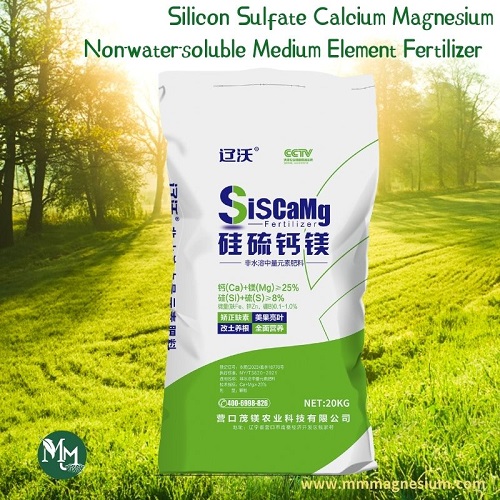Attention to the interaction between fertilizers
In agricultural production, the scientific use of fertilizers is the key to promoting crop growth and increasing yields. However, there are interactions between different fertilizers, which may reduce fertilizer efficiency or even have adverse effects on crops. Farmers need to have a deep understanding of these interactions and take corresponding countermeasures to ensure efficient use of fertilizers and healthy growth of crops. The following is an analysis of the interactions between fertilizers and countermeasures.
1. Interactions between fertilizers
1. Acid-base effects
-
*Nitrogen fertilizer and lime: Mixing nitrogen fertilizer (especially ammonium nitrogen fertilizer) with lime will cause volatilization loss of nitrogen and reduce the utilization efficiency of nitrogen fertilizer. Nitrogen fertilizer and lime should be applied separately, with an interval of at least one week.
-
*Phosphate fertilizer and lime: Mixing phosphate fertilizer and lime will form insoluble calcium phosphate, which will reduce the effectiveness of phosphate fertilizer. Simultaneous application should be avoided, and it is best to apply them in different seasons.
2. Chemical reaction effects
-
* Phosphate fertilizer and calcium fertilizer: Mixing phosphate fertilizer and calcium fertilizer will form insoluble calcium phosphate, which will reduce the effectiveness of both. They should be applied separately, with an interval of time.
-
* Potassium fertilizer and ammonium sulfate: Potassium fertilizer (especially potassium chloride) mixed with ammonium sulfate will produce harmful chloride ions and sulfate ions, which are toxic to crop roots. Avoid simultaneous application.
3. Nutrient antagonism
-
* Potassium and calcium and magnesium: Excessive potassium fertilizer will inhibit the absorption of calcium and magnesium by crops, leading to calcium and magnesium deficiency symptoms. The application amount of potassium fertilizer should be reasonably controlled, and calcium and magnesium fertilizer should be supplemented.
-
* Nitrogen and copper and zinc: Excessive application of nitrogen fertilizer will inhibit the absorption of copper and zinc by crops, leading to copper and zinc deficiency symptoms. Nitrogen fertilizer should be applied reasonably, and attention should be paid to the supplementation of trace elements.
4. Influence of fertilizer form
-
* Organic fertilizer and chemical fertilizer: Organic fertilizer and chemical fertilizer are mixed and applied. The organic acid in organic fertilizer will affect the dissolution and absorption of chemical fertilizer. Organic fertilizer and chemical fertilizer should be applied in batches to avoid large-scale application at one time.

II. Countermeasures
1. Fertilization in batches
Use the method of fertilization in batches to avoid excessive fertilization at one time, reduce nutrient loss and environmental impact. This can effectively avoid the antagonism between different fertilizers and improve the utilization efficiency of fertilizers.
2. Interval fertilization
For fertilizers that have antagonistic effects, such as nitrogen fertilizer and lime, phosphate fertilizer and calcium fertilizer, etc., they should be applied at intervals. This can avoid chemical reactions and ensure the effectiveness of various nutrients.
3. Reasonable matching
According to the growth needs of crops, reasonable matching of different fertilizers can give full play to the symbiotic effect of fertilizers. For example, nitrogen fertilizer and phosphate fertilizer, potassium fertilizer and phosphate fertilizer, etc. can promote each other and improve fertilizer efficiency.
4. Use compound fertilizer
Using scientifically proportioned compound fertilizer can effectively avoid the antagonism between different nutrients and improve the utilization efficiency of fertilizers. Compound fertilizer contains a variety of essential nutrients that can meet the comprehensive needs of crops.
5. Soil testing
Conduct soil testing before fertilization to understand the nutrient content and pH value in the soil, and apply fertilizer scientifically according to the test results. This can avoid excessive or insufficient fertilizers and ensure the normal growth of crops.
6. Supplement trace elements
When applying macronutrient fertilizers, you should also pay attention to supplementing trace elements, such as zinc, copper, and manganese. This can prevent trace element deficiency symptoms caused by excessive macronutrients.
7. Use organic fertilizers in combination
Organic fertilizers and chemical fertilizers can improve soil structure, increase soil microbial activity, and improve crop nutrient absorption capacity. Organic fertilizers can provide organic matter and promote the continuous improvement of soil fertility.
8. Avoid excessive fertilization
Reasonably control the amount of fertilizers, avoid excessive fertilization, and reduce fertilizer pollution to the environment and damage to crops. Fertilization should be scientifically carried out according to the fertilizer requirements and growth stages of crops.

